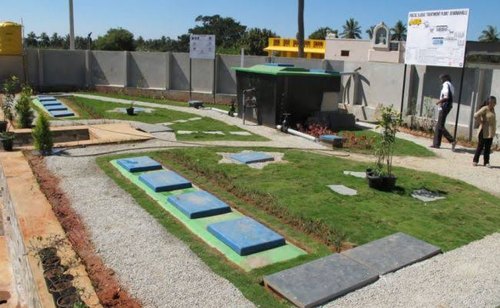“Uttar Pradesh has been steadily moving ahead in laying the foundations for faecal sludge and septage management infrastructure in its cities. A huge investment is being made in building treatment plants and systems. At this moment in time, it is important to step back, assess the progress, and initiate course correction measures if required,” said Sunita Narain, director general, Centre for Science and Environment (CSE), at a workshop and meeting in Lucknow.
The meeting was organised jointly by CSE, the Uttar Pradesh (UP) Government’s Department of Urban Development (DoUD), and the Atal Mission for Rejuvenation and Urban Transformation (AMRUT).
The meeting discussed the current state of faecal sludge and septage management (FSSM) systems and practices in Uttar Pradesh, the challenges faced by cities in managing urban sanitation, and what could be an effective roadmap for the future. A report titled Septage Management for City-wide Inclusive Sanitation in Uttar Pradesh was released on the occasion.
Connecting the concern of urban sanitation management to that of a clean Ganga, Narain said in her opening address: “All the efforts that we are making to clean our rivers will not succeed if we do not ensure affordable and effective sewage and septage management — Namami Gange needs it.”
Ninety-five per cent of UP’s cities and towns are totally dependent on non-sewered sanitation systems. Only 31 towns (out of the 734 in the state) have partial sewerage system coverage; together, they manage to treat just 40 per cent of the sewage generated, says a 2021 report by the Central Pollution Control Board (CPCB).
Speaking on the occasion, Amrit Abhijat, principal secretary, DoUD, Government of UP, proposed introduction of a system of ranking districts in the state on the basis of “ease of septage management” to motivate city administrations
. He also emphasised on the critical and relevant role that the DoUD plays in cities. “We (the department) are as good as yesterday. Our role is that of providing a vital public service, and if we do not perform that service even one day, we are liable to be brought to task.”
Speaking before him, Neha Sharma, director, DoUD outlined the key priorities of urban local bodies (ULBs) and said: “ULBs must be made an integral part of the whole infrastructural development processes for FSSM, right from their inception. They should be involved at every step.” She also stressed on the criticality of “bye-laws and how they can play an important role in driving change and creating lasting impact”.
According to the report released here, as of June 2022, 62 FSSM projects are being built in UP, supported by AMRUT, the National Mission for Clean Ganga (NMCG) or urban local bodies themselves. These are spread across 59 cities and towns in 53 districts. The total investment amounts to Rs 220 crore — Rs 190 crore of this would go towards building 40 faecal sludge treatment plants (FSTPs), and another Rs 30 crore for building 22 co-treatment plants.
The report also says that fully functional and operational septage treatment systems are now in place in 10 cities of UP. These include 10 FSTPs and one co-treatment plant. The installed and under-construction capacity of UP’s septage treatment infrastructure now stands at 2,075 kilolitre per day (KLD).



